
As the eCommerce industry continues to grow, many businesses are looking for new ways to expand their reach and increase their sales. One strategy that has proven to be highly effective is affiliate marketing with eCommerce marketing.
Affiliate marketing is a type of performance-based marketing where a business rewards its affiliates for each visitor or customer brought about by the affiliate’s marketing efforts. This can be a great way to increase brand awareness and drive sales for your eCommerce business.
What is eCommerce Affiliate Marketing?
eCommerce affiliate marketing is the process of partnering with other businesses or individuals to promote your products or services. The affiliate will receive a commission for each sale or lead that is generated through their marketing efforts.
There are several different types of affiliate marketing programs, such as pay-per-sale, pay-per-lead, and pay-per-click.
- Pay-per-sale programs pay affiliates a commission for each sale that is made through their marketing efforts.
- Pay-per-lead programs pay affiliates for each lead that is generated through their marketing efforts.
- Pay-per-click programs pay affiliates for each click that is made through their marketing efforts.
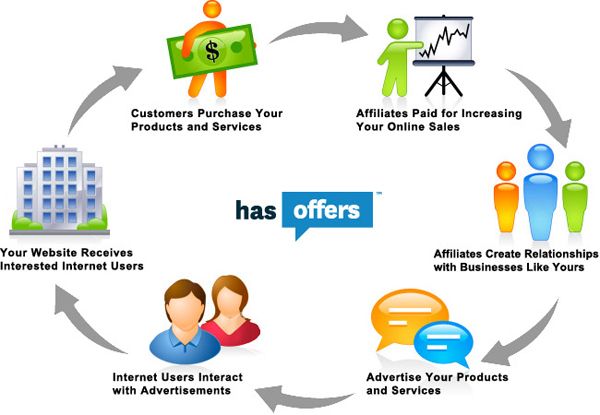
What are the 3 main types of affiliates?
The three main types of affiliates are:
- Single-tier affiliates: These are individuals or organizations that promote the product or service of a merchant, and earn commissions based on their own sales or leads.
- Multi-tier affiliates: These are affiliates who earn commissions not only on their own sales but also on the sales made by other affiliates they recruit into the program.
- Sub-affiliates: These are affiliates who join a multi-tier affiliate program and earn commissions on the sales made by the sub-affiliates they recruit.
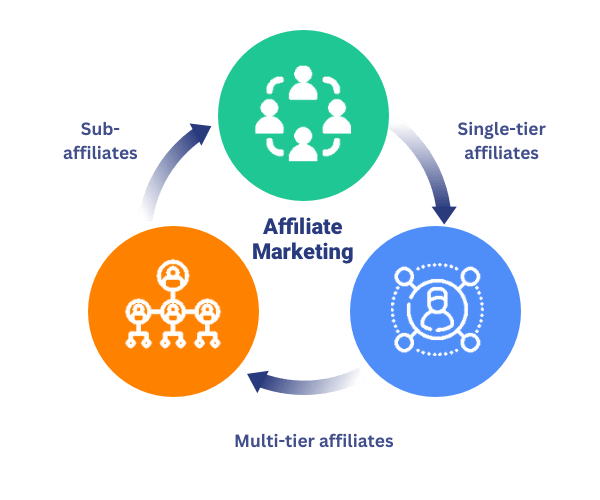
How does Affiliate marketing work?
Affiliate marketing is a performance-based marketing strategy that allows businesses to expand their reach and increase sales by partnering with individuals or organizations known as affiliates. These affiliates promote the business’s products or services to their own audience, and in return, they receive a commission for any resulting sales. Affiliate marketing involves:
- Affiliates promote products or services through their own channels, such as blogs, social media, podcasts, or websites.
- Affiliates are given a unique referral link or code to track their promotions and sales.
- Whenever a customer makes a purchase by clicking on an affiliate link, the affiliate earns a commission from the sale.
- Affiliate marketing allows businesses to reach a wider audience and drive sales through the promotion of their products or services by trusted affiliates.
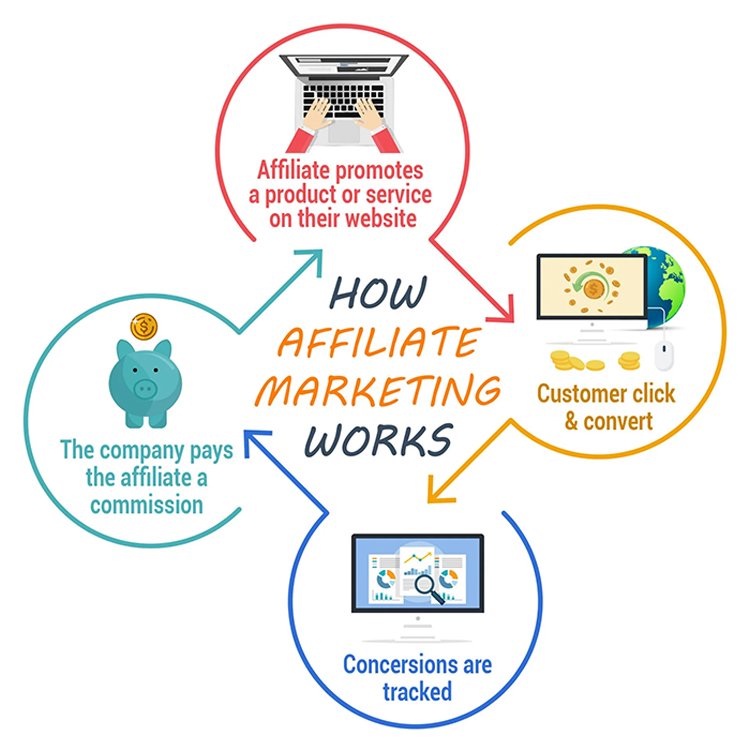
How to get started with affiliate marketing?
- Research and choose a niche: The first step in getting started with affiliate marketing is to choose a niche that aligns with your interests or expertise. This could be a specific product category, a type of service, or a specific target audience.
- Find affiliate programs: Once you have a niche in mind, you can start researching affiliate programs that are relevant to your niche. Look for programs that offer high commissions and a wide range of products or services to promote.
- Sign up for affiliate programs: Once you’ve found a few programs that you’re interested in, sign up to become an affiliate. It involves filling out an application form and providing website or blog information.
- Create content: As an affiliate, your main job is to promote the products or services of the companies you’re affiliated with. You can do this by creating content such as blog posts, product reviews, and tutorials.
- Use your affiliate links: Whenever you promote a product or service, make sure to include your affiliate link. This is the link that will track your sales and pay you a commission for any resulting purchases.
- Monitor your performance: Keep track of your sales and earnings, and use this information to optimize your affiliate marketing strategies. Look for ways to improve your website or content, and make changes as needed.
- Optimize your content for SEO
- Use social media platforms to reach more people
- Use email marketing to reach your audience
- Keep learning and experimenting to improve your strategies.
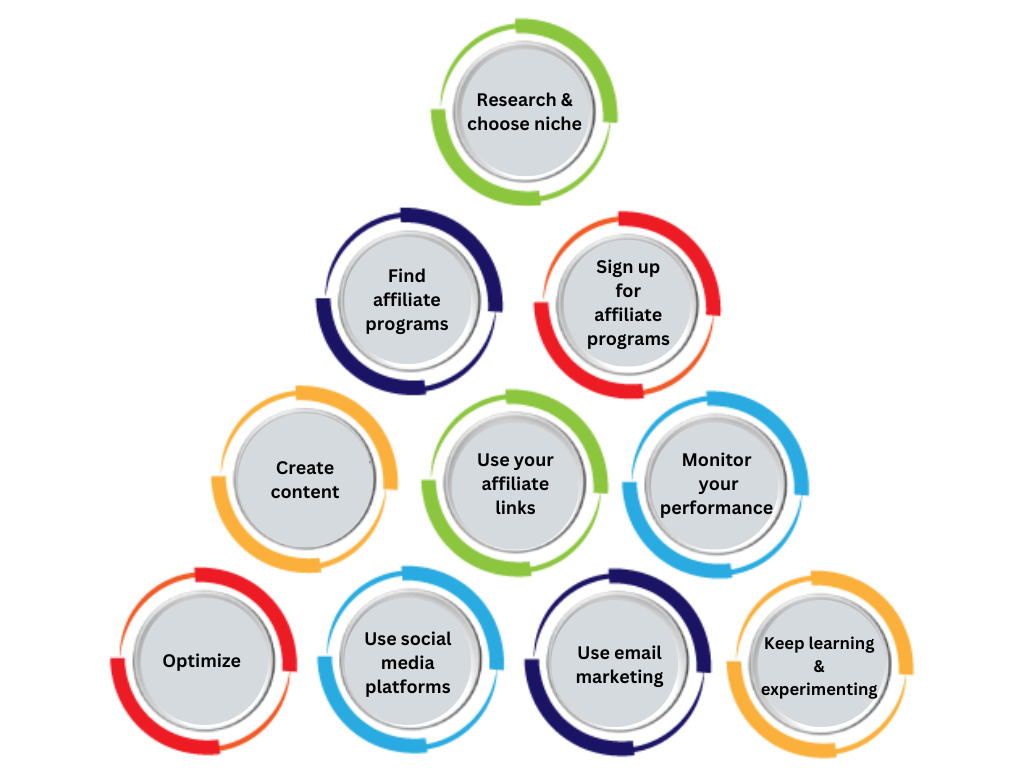
What are the 3 pillars of affiliate marketing?
The three pillars of affiliate marketing are:
- Merchant/Advertiser: The business or individual who is promoting their product or service through affiliate marketing. They provide the affiliate with a unique link or code to track their sales and commissions.
- Affiliate: The individual or business that promotes the merchant’s product or service in exchange for a commission. They use various methods, such as website banners, blog posts, or social media ads, to drive traffic to the merchant’s website.
- Consumer: The end user who clicks on the affiliate’s link or code and makes a purchase from the merchant’s website. This is the ultimate goal of affiliate marketing, as the sale generates a commission for the affiliate and revenue for the merchant.
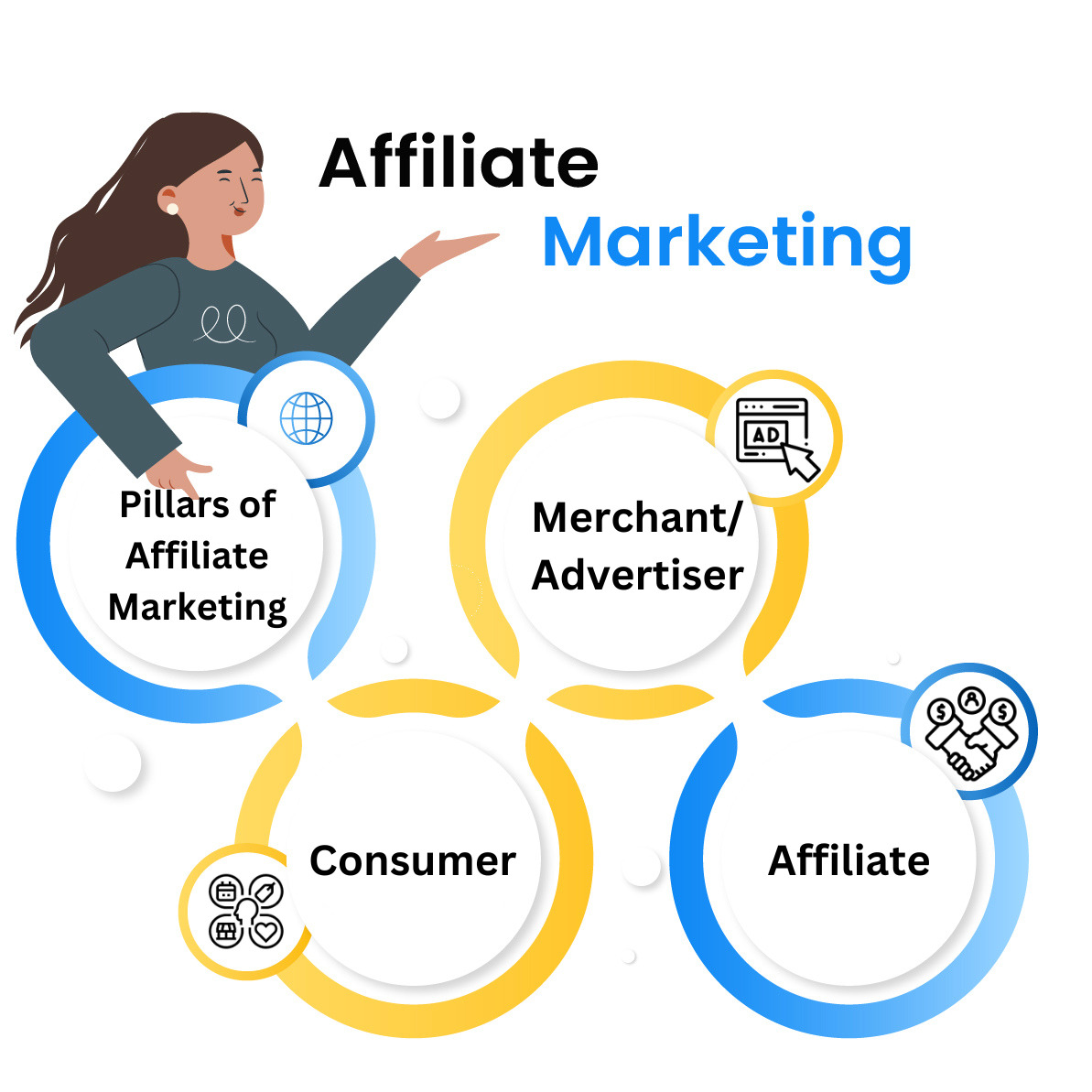
How to Partner with Influencers?
One of the best ways to increase your reach and drive sales through affiliate marketing is to partner with influencers. Influencers are individuals or businesses with a large following on social media or other platforms. They have built a reputation for being experts in their field and have a dedicated following of fans.
To find influencers to partner with, you can use tools such as Buzzsumo, Klear, and Traackr. These tools will allow you to search for influencers in your niche and see their reach and engagement rates.
Once you have found influencers to partner with, you can reach out to them and offer them a commission for each sale or lead that is generated through their marketing efforts. You can also offer them exclusive discounts or other incentives to encourage them to promote your products or services.

Measuring and Optimizing Your Affiliate Marketing Efforts
To ensure that your affiliate marketing efforts are successful, it is important to measure and optimize your performance. This can be done by tracking metrics such as sales, leads, and website traffic generated by your affiliate partners.
You can also use tools such as Google Analytics and Google Search Console to track your website traffic and see which pages are generating the most sales or leads. This will allow you to identify areas for improvement and make adjustments as needed.

Conclusion
eCommerce affiliate marketing is a powerful way to increase your reach and drive sales. By partnering with influencers in your niche, you can tap into their audience and gain access to new customers. Whether you’re just getting started with affiliate marketing or looking to take your efforts to the next level, there are a few key strategies to keep in mind.
First, focus on building relationships with influencers. This can involve reaching out to them directly, offering them incentives for promoting your products, or simply building rapport and establishing a relationship over time.
Next, make sure to track your results and optimize your efforts accordingly. This can involve monitoring metrics such as sales, leads, and website traffic, and making adjustments as needed.
Finally, Affiliate marketing is a constantly evolving field, and the best way to stay ahead of the curve is to be open to new ideas and opportunities.

